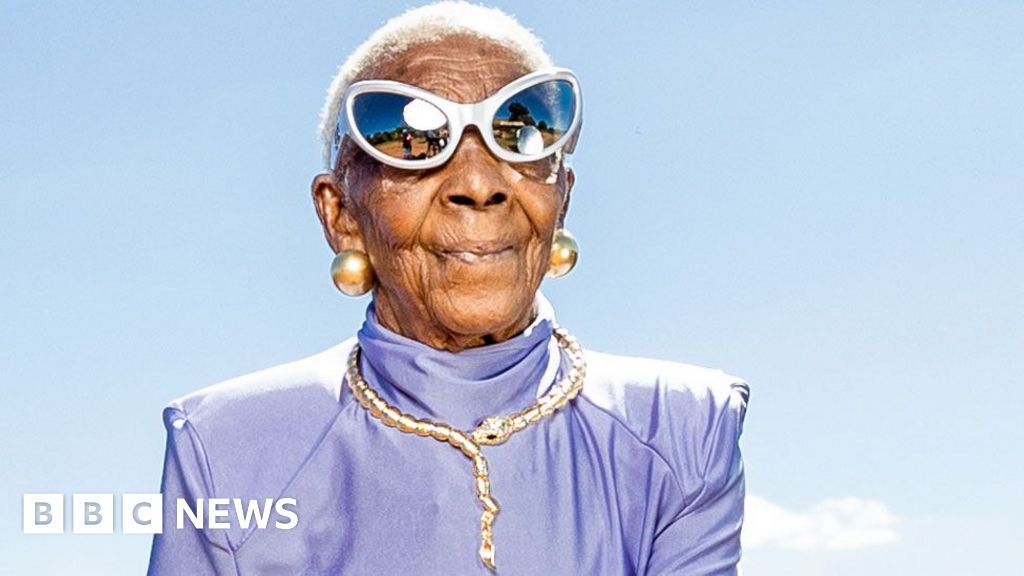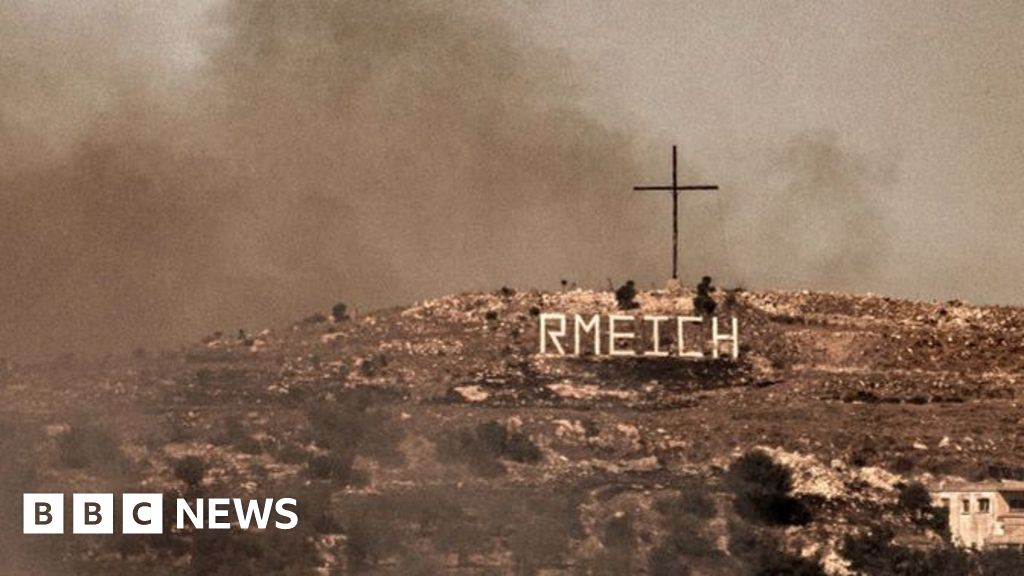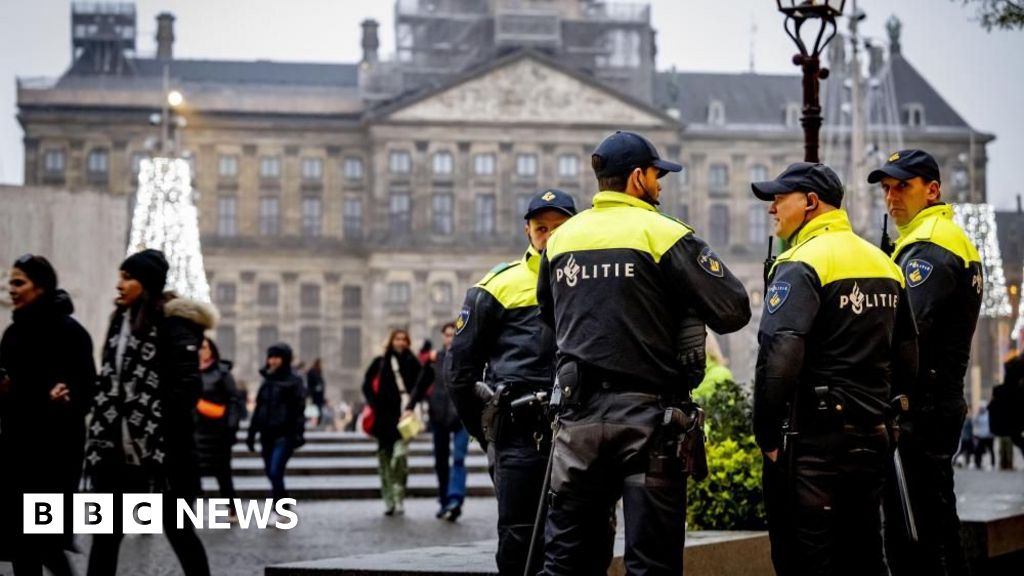ARTICLE AD BOX
By Bernd Debusmann Jr
BBC News
It was late September when Adamee Itorcheak, a 56-year-old resident of Iqaluit - the capital of Canada's northernmost and sparsely populated territory of Nunavut - noticed something was wrong with his water.
"The kitchen sink was the first indicator," said Mr Itorcheak, recalling a chemical smell coming from the water.
Mr Itorcheak, an indigenous Inuk, is one of the approximately 7,700 Iqaluit residents who have been left without potable water for over a month. It took numerous complaints of suspicious odours to get officials to confirm that the city's water supplies were contaminated with fuel.
Since a state of emergency was declared on October 12, Iqaluit's residents have been warned that local water supplies are unsafe to drink or cook with. The water was so contaminated that officials warned that it wouldn't be safe even after boiling.
In an interview with the BBC, Iqaluit mayor Kenny Bell said that while officials are "pretty confident" that spillage of some type of fuel from an underground tank is the likely culprit, they aren't "100% sure".
"There's still an investigation going on," he said. Officials hope to have more answers next week after some recent testing near the suspected leak site.
Faced with the shortage, residents were forced to stock up on bottled water, quickly depleting supplies at the city's two main grocery stores. Many residents filled jugs in the icy waters of the nearby Sylvia Grinnel River just outside the city.
The water issues, Mr Itorcheak said, were particularly hard on many of the city's low-income residents, particularly those without transportation of their own.
"I'm constantly getting calls from friends or relatives and people looking for a ride to pick up water," he explained. "Even if they make it to the water, [a jug] is 50 pounds. Imagine trying to carry that over a distance."
Francois de Wet, the chief of staff of Qikiqtani General Hospital - the only one in town - told the BBC that for an eight-day period starting in late October, the hospital was forced to cancel surgeries and procedures that it couldn't do without single-use instruments, as the machine used to sterilise instruments relies on tap water.
A total of 30 surgery cases were cancelled, as well as eight urology and 28 dental cases that had to be postponed.
Mr de Wet, who is also the territorial chief of staff for Nunavut's health department, added that local officials also had to deal with hesitance and reluctance from many area residents who rely on Iqaluit's medical facilities.
Early on, women who were pregnant were told to avoid even showering with the water - a warning later rescinded - leaving some with safety concerns about their care.
"That was a huge concern for us," he said.
In response, local officials worked with partners in Ottawa - some 2,000 km (1,240 miles) away - to give them the option of flying south for maternity care.
"Luckily, since it was only an eight-day period, there were very few medevac calls," Mr de Wet added. "There was some, but it wasn't a flood of people that had to be sent out of the territory."
Additionally, city officials have imported approximately a million litres of water to distribute to residents, both from government and non-governmental sources - a move considered vital as the Sylvia Grinnel River begins to freeze over.
Image source, Courtesy Canadian Armed Forces
Image caption,The military plans to provide 24,000 litres of water a day safe for drinking
On 23 October, the Canadian Armed Forces announced it was deploying mobile units to treat water from the river and transfer it to city trucks to take it to water depots for residents. The deployment marks the first time the equipment - which has been previously used for disaster relief in Haiti and the Philippines - is used so far north and in temperatures around -15C (5F).
Still, Mr Bell says that Iqaluit's remote location in Canada's north has caused "frustration" during response efforts.
"There's just way around it…we can't even bring in enough testing [kits] from the laboratory in Ottawa because of supply chain issues," he explained. "Getting things on a plane, the engineers, the equipment, it's all just been incredibly slow."
While Nunavut's government has extended Iqaluit's state of emergency through 23 November, Mayor Bell says it's unclear how long it will last. Iqaluit's own state of emergency is being reviewed on a weekly basis.
"Both of those orders will stay in place until we have that do-not-consume order lifted," he said.
While Iqaluit's shortages have grabbed the headlines over the last several weeks, the town is far from the only Canadian community to face water woes.
Dozens of First Nations communities are under long-term drinking water advisories.
According to the Council of Canadians, a social justice organisation, 73% of First Nations' water systems are "at high or medium risk" of contamination. The organisation says the issue "is one of the greatest violations of the UN-recognised human rights to water and sanitation".
In 2015, Prime Minister Justin Trudeau committed to resolving these issues by March of this year. While government numbers say it has lifted over 100, it failed to meet the deadline of lifting them all.
In Nunavut - which is 86% indigenous - Mr Itorcheak says the issue has compounded years of mistrust of the local government.
"There were already trust issues…it's a constant struggle," he adds. "[Now] there's a lack of proper information. Information was not very forthcoming. It makes things harder. Someone botched up. We only found out about the contamination after people had been complaining for 10 or 14 days."
Mr Bell, for his part, said that while most of his constituents have been "extremely positive" and understand the challenges faced by local officials, he understands why some are frustrated.
"There's a million things going on, but if I was here as a regular citizen, I'd be real upset right now," he said. "There's a lot of information, but there's not enough information on the testing, and what actually happened and why."
"We're so remote that it's really hard to operate. Most people get it, and some don't," Mr Bell added. "But that's fine. People should be frustrated. This isn't a situation where you shouldn't be mad or frustrated. I wholeheartedly get it."
Mr Itorcheak believes the issues point to a shortage of resources and attention from Canada's more populous southern regions when it comes to northern concerns.
"Somewhere with a million people will drown out the 35,000 people in Nunavut," he said. "The million will get more attention, because that's more voters."
"In Canada, this shouldn't be an issue," he added. The federal government will contribute to help abroad "trying to be like the UN, but they can't even take care of their own".

 3 years ago
66
3 years ago
66








 English (US)
English (US)